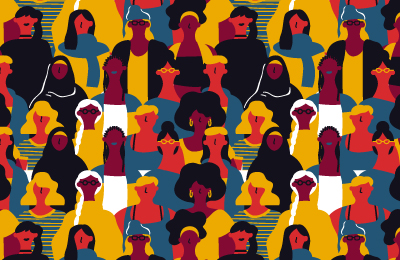Leading the future

Hiam Al Muhtadi, legal director, surveys the evolution of women’s rights in the United Arab Emirates focusing on legislative developments, policies and initiatives that are advancing empowerment of women.
The United Arab Emirates (“UAE”) has made drastic reforms on women’s rights in recent years by introducing several laws and government policies which ensures the protection and safety of women in all aspects of society.
This article highlights some key fundamental legislative developments towards women’s rights in the UAE, demonstrating the UAE’s commitment to eliminate gender disparity and promote the professional growth of women in leadership roles.
International Convention on Elimination of Discrimination
In 2004, the UAE became a signatory to the international convention on the elimination of all forms of discrimination against women, demonstrating the country’s dedication to eliminate gender inequality and eagerness to participate in initiatives concerning the welfare of women in the UAE.
Foundation for Women and Children
The Dubai Foundation for Women and Children (“DFWAC”) was established in 2007 to protect women and children against domestic abuse, violence and human trafficking. The DFWAC offers several support services to women and children and launched a wide range of awareness campaigns and programs to encourage women to seek support.
Gender Balance
The UAE’s Gender Balance Council was established in 2015 to, among other matters, promote the participation of women in leadership roles and ensure gender balance in the workforce, showcasing the country’s dedication to women empowerment.
Female Board Members
In 2015, Ministerial Resolution No. 225 of 2015 concerning Governance Rules and Corporate Discipline Standards (the “Resolution”) was passed to mandate listed companies to have at least one female board member. This Resolution was further supported by the UAE Securities & Commodities Authority (“SCA”) resulting in an amendment to SCA’s Board Chairman’s Decision No. (3/Chairman) of 2020 Approving the Governance Guide for Public Joint-Stock Companies, as amended by SCA Chairman’s Resolution No. (02/R.M) of 2024 (“SCA Corporate Governance Guide”). These amendments increased the number of women in leadership roles and executive positions in the UAE and will further encourage female Emirati youth to pursue opportunities in executive positions.
Equal Wages and Salaries Law
In 2018, the UAE achieved another significant milestone by mandating equal pay for men and women through the enactment of the Equal Wages and Salaries Law (Federal Law No. 27 of 2018). This Law underlines the country’s commitment to gender diversity and economic empowerment for women.
Federal National Council
In 2019, His Highness Sheikh Khalifa Bin Zayed Al Nahyan passed a resolution to increase the representation of women in the Federal National Council (“FNC”) by fifty percent, in order to encourage the involvement and participation of Emirati women in elections. This resolution has increased the number of Emirati female staff at the FNC and also demonstrates that the UAE is striving to boost leadership roles for women.
Domestic Violence Law
Federal Law No. 10 of 2019 on the Protection Against Domestic Violence (“Domestic Violence Law”) which came into force on 1 March 2020, prohibits domestic violence by a family member against mothers and children and aims at protecting them from abuse and harassment. The Domestic Violence Law also introduced provisions related to restraining orders which were not common in the UAE compared to other Western jurisdictions, and also imposes stringent penalties of imprisonment for three months and/or a fine of between one thousand to ten thousand dirhams or double if the restraining order is violated, and imprisonment for not more than six months and/or a fine of not more than five thousand dirhams against anyone who commits domestic violence crimes.
Labour Law
Federal Law No. 33 of 2021 on the regulation of Labour Relations and its implementing Executive Regulations under Cabinet Resolution No. 1 of 2022 which came into force in February 2022 and were subsequently amended in 2024, (the “Labour Law”) also introduced equal pay provisions for both men and women who perform the same work, anti-discrimination provisions, and extended maternity leave.
The Labour Law also prohibits employers from terminating or threatening to terminate female employees on the basis of pregnancy or maternity leave.
Human Trafficking Law
Federal Law No. 51 of 2006 Concerning Combating Human Trafficking Crimes was enacted in 2006 and amended by Federal Law No. 24 of 2023 (“Human Trafficking Law”) to impose stringent penalties and sentencing for human trafficking crimes against women and children. The Human Trafficking Law also penalises any individuals who are aware of the commission of human trafficking offences but fail to report such crimes to the relevant authorities with imprisonment for a period ranging from one year to five years and a fine of not less than fifty thousand Dirhams, or either one of these two penalties.
Cabinet Resolution No. 44 of 2024
Another key milestone is the enactment of Cabinet Resolution No. 44 of 2024 concerning the Permitted Abortion Cases which allows women to undergo abortions in circumstances involving complications in pregnancies or where the pregnancy is the result of unlawful demeanors and assault.
Conclusion
The UAE’s implementation of several government policies and legislation which safeguard women’s rights is a testament to the country’s dedication to abolish all forms of discrimination against women, and its inclination to continue enacting additional policies, initiatives and laws that are designed to preserve women’s interests and inspire women to significantly contribute to the country’s growth.
The UAE prides itself in promoting gender equality and female empowerment and it is invigorating to anticipate the future projects and strategic initiatives the country has planned to further advance and support women’s prospects in the workforce and society at large.
Text by:

Hiam Al Muhtadi, legal director in the telecommunications sector, Dubai

























































































































